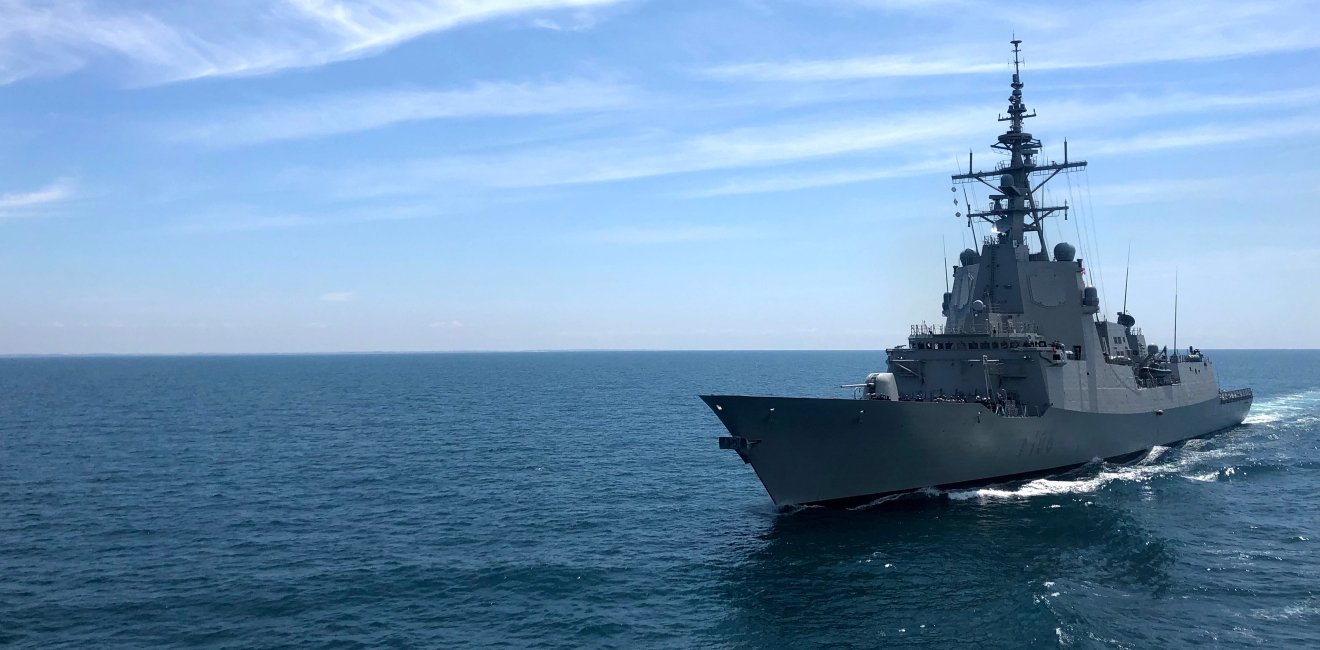
A blog of the Polar Institute
Introduction
The 2022 US National Security Strategy names the People’s Republic of China, as a pacing challenge, the top threat to the US domestic and global interests. The ability of the United States to manage its priority national security interests abroad requires access and influence. One means of achieving global access and global influence is through membership and leadership in international organizations and instruments. Beijing is clearly pursuing its own global influence in international fora in two ways: first, through coalition-forming and compellance, and second, through establishing its own preferred versions (for example, the China-led Asian Infrastructure Investment Bank as an alternative to World Bank/IMF). Few have explained these PRC ambitions as effectively as Elizabeth Economy in her recent article, “China’s Alternative Order.”
The US can no longer afford to stand outside key global institutions: doing so only cedes the playing field to Beijing. One critical piece of the international rules based order is global oceans governance. Over 90% of the world’s economy relies on a secure and stable system of global ocean governance, built on the bedrock of the UN Convention on the Law of the Sea (UNCLOS). UNCLOS lays out rules for everything from global shipping enterprise and management of offshore natural resources including fisheries, critical minerals, oil, and natural gas—all managed primarily through the convention’s authorities and intent. UNCLOS is truly a vital part of our everyday lives, from our cars and cellphones to our fish sticks and toothpaste.
China intends to increase its application of UNCLOS and influence over the convention to serve its authoritarian purposes, and not necessarily in overt and obvious ways. Beijing has a multi-faceted global strategy to achieve its UNCLOS objectives: including influencing freedom of navigation, critical minerals, seabed mining financial system, and the credibility of international institutions. After years of debate, it is time for the US to join UNCLOS and prevent China from leveraging the oceans to its benefit.
Freedom of Navigation
The United States, as a global maritime leader, faces critical challenges in safeguarding freedom of navigation—the maritime foundation for international trade and military strategy. Yet, despite its influential naval power, the United States remains one of the few nations not party to the United Nations Convention on the Law of the Sea (UNCLOS). Most importantly, UNCLOS codifies the concept of "freedom of navigation," for international and operational law purposes. Becoming a member to UNCLOS would offer the United States several strategic advantages. Firstly, it would enhance the legitimacy of US naval actions and diplomatic efforts aimed at protecting sea lanes and ensuring compliance with international maritime law. Secondly, UNCLOS membership would enable the US to participate more actively in the evolving jurisprudence of maritime law.
Numerous locations around the world involve territorial disputes, known as ‘excessive maritime claims,’ that often have significant impacts on freedom of navigation for the US and other nations. Most notably is China’s effort to secure authority over the South China Sea, where over $3 trillion in economic activity occurs annually with the world’s largest collective economy in Southeast Asia—a status that Beijing intends to dominate and weaponize. While UNCLOS codifies freedom of navigation overflight and other internationally lawful uses of the sea beyond territorial waters, China seeks to assert unlawful jurisdiction over our warships by degrading these norms. By establishing a powerful regional presence and new capabilities, including military radar and offensive systems, China seeks to dilute navigational freedoms and assert control over maritime access and naval and air operations.
Lending American strength and influence to UNCLOS is the best way to peacefully hold the line on our rights and freedoms, and ensure other countries feel empowered to stand with us. Moreover, Iran and its terrorist proxies threaten freedom of navigation in the Strait of Hormuz, the Strait of Bab el Mandeb and the Gulf of Aden. Joining UNCLOS bolsters US and Allied operations to counter global threats to freedom of navigation and assures other states to support our efforts.
Whether practical or philosophical, adversarial threats to freedom of navigation principles and norms could quickly erode the rules-based order and global maritime stability in ways best to avoid. As China continues to develop maritime power and presence at a pace never achieved before, the United States must strengthen its maritime power with equally effective institutional authority. Joining UNCLOS remains an important, and possibly final opportunity, before adversarial forces compel less effective options.
Critical Minerals
Much of the world’s supply of critical minerals exists on the seabed and below, estimated at 250 trillion tons versus 13 trillion on land. In areas beyond national jurisdiction, the International Seabed Authority (ISA) under UNCLOS maintains responsibility for seabed mining activities and administration, including consideration of managing ecosystem compatibility. Critical minerals are defined by the Energy Act of 2020 as “a non-fuel mineral or mineral material essential to the economic or national security of the US and which has a supply chain vulnerable to disruption”, including rare earth minerals. Current demand for critical minerals is driven by several key material-based applications, including lithium-ion batteries and electrical steel for EVs, compounded demand of rare-earth magnets for offshore wind technology, grid power storage suppressed by lithium, nickel, and graphite supplies, silicon carbide-based power electronics, and LED global lighting and Li-Fi momentum—all identified as leading forces in market growth worldwide, just to name a few.
The ISA is currently developing Rules, Regulations, and Procedures (RRPs) for seabed mining exploitation, due to be established in July 2025, involving a process where the United States is only allowed to observe while China is steering efforts towards authoritarian-like results. Moreover, Beijing is continuing efforts to displace US permit-based seabed mining sites in the Clarion-Clipperton Zone, the world’s largest zone with 40% off limits in designated Areas of Particular Environmental Interest, among other places. The US lack of membership to UNCLOS leaves Washington at a competitive disadvantage, facing distracting and unnecessary legal vulnerabilities while being outmaneuvered elsewhere on related efforts.
Critical minerals are the bedrock of current and future geo-economics as well as crucial technology R&D and manufacturing directly involved with US national security priorities. Membership to UNCLOS remains the easiest step to elevate US access and influence over this critical sector.
Seabed Mining Financial System
When the final version of UNCLOS III was established in 1982, President Reagan rightly rejected the flawed fiscal formula relating to revenue sharing. Since then, the main issues were resolved. Yet, the damage was done, and years of misinformation perpetuated convoluted understanding of fiscal realities. Moreover, China continues to leverage US lack of access and influence on fiscal development involving the seabed mining financial regime.
Today’s ISA efforts are decades beyond initial concerns, with the official financial regime options fully developed and under comprehensive consideration and near completion. Efforts began in 2012 with a preliminary study in support of implementation for an exploitation code, including fiscal priorities. The financial regime for deep sea mining has two components, including the payment regime (financial returns from the extraction contractors) and revenue disbursement (everything after). The initial reports commissioned to inform development involved robust, expert studies of land-based mining taxation as well as valuation of polymetallic (ferromanganese) nodules, the currently permitted exploration for primary class of deep ocean mineral deposits, versus cobalt crusts or seafloor massive sulfides.
Using the above commissioned reports, reports from an MIT group that led primary development of the four financial regime options, and additional examination for state sponsored corporate income taxconsiderations, the IGF Secretariat provided a collective financial regime development report for conclusive decision making as exploitation permitting is expected to begin in the summer of 2025. Every effort to inform equitable fiscal regime results has taken place; what remains is the lack of US access and influence to ensure final decisions benefit western, market-based principles versus authoritarian-favored arrangements. US membership to UNLCOS remains the most reasonable choice, especially as formative developments become operationalized in the coming months.
Strengthening International Institutions
Since its establishment, some continue to maintain opposition for US membership to UNCLOS based mainly on a “philosophical aversion to multilateral institutions.” This position is quickly becoming antiquated as China pursues re-establishing the world order in its favor; “China is now ready to gradually erode American leadership and promote Chinese governance,” in accordance with its recent “Dare to Fight” strategy. In the past, the US could rely on its status as a unilateral superpower to achieve its goals regardless of access or membership to international agreements, including UNCLOS. Under Xi Jinping, China has become more vocal about its dissatisfaction with the existing international order, engaging in a more forward-leaning, assertive effort to reshape the system, as China continues to effectively operationalize their global strategy. At the very least, China could force a two-orders global system, if not able to outright dominate unilaterally, where China intends to employ a “grand strategy of displacing American power”, requiring the United States to pursue a strategy that also involves “preserving democratic institutions.”
UNCLOS established three bodies involving global maritime management with the US limited to observer status at best, including the Commission on the Limits of the Continental Shelf (CLCS), ISA, and International Tribunal for the Law of the Sea (ITLOS). China’s efforts to influence UNCLOS issues without concern for US competition continues to increase. The CLCS manages critical recommendations involving maritime claims, where US positions hold limited influence and China continues to convolute issues while eroding Western-based international principles and norms. China remains dominant in the ISA by forming coalitions to facilitate the upcoming establishment of authoritarian-like Rules, Regulations, and Procedures (RRPs) for seabed mining exploitation. China also continues to lead prevention of ITLOS to advise on climate change obligations under UNCLOS and has also circumvented enforceable adjudication (through the Hague’s Permanent Court of Arbitration versus ITLOS and ICJ) on critical issues, such as establishment of artificial islands.
Conclusion
Washington can no longer afford a complacent attitude in global competition. The most effective strategy is to strengthen international institutions with full support before China increasingly transforms or replaces them with authoritarian versions.
In recent years, our nation has not coalesced as a unified society and government on many issues besides the threat China represents to U.S. national security interests. The US has a steep learning curve to remain competitive with China. Most of the nation remains highly aligned on this issue but operationalizing a counter-PRC / China containment strategy will require active strengthening of our global position. The US vision of Bretton Woods and the post-WWII world order is fading away, transforming into an authoritarian version as China-led slowly replaces US-led. The United States must realize that China intends to fill every power vacuum and leadership gap. US unilateral positions are no longer practical or as urgent as countering PRC advancements. There is strength in numbers, and the United States must take active measures at every opportunity to compete effectively: this means that the US must join UNCLOS as soon as possible.
Author


Polar Institute
Since its inception in 2017, the Polar Institute has become a premier forum for discussion and policy analysis of Arctic and Antarctic issues, and is known in Washington, DC and elsewhere as the Arctic Public Square. The Institute holistically studies the central policy issues facing these regions—with an emphasis on Arctic governance, climate change, economic development, scientific research, security, and Indigenous communities—and communicates trusted analysis to policymakers and other stakeholders. Read more

Explore More in Polar Points
Browse Polar Points
UNCLOS 25 years in force

US Extended Continental Shelf

Joining the Law of the Sea

